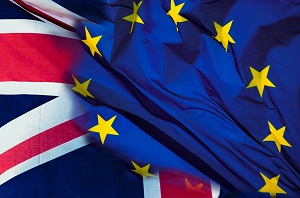The UK's post-Brexit farm policy could see reintroduction of border controls in Ireland
11 January 2017

The latest briefing paper from University of Reading Emeritus Professor Alan Swinbank suggests that while Brexit offers the UK an opportunity to design a more efficient agricultural policy that would benefit farmers and the environment, this new policy could have possible implications for consumer prices and will have to conform to World Trade Organization (WTO) rules. The paper will be presented at a UK Policy Trade Observatory (UKTPO) event at Chatham House organised by the University of Sussex.
At present, UK agriculture is significantly underpinned by financial support through the EU’s Common Agriculture Policy (CAP). The government has already promised to honour any funding commitments already in place up until 2020, but after 2020 it is likely to reduce taxpayer support for agriculture whilst placing more emphasis on enhanced environmental programmes.
Professor Alan Swinbank, Emeritus Professor of Agricultural Economics at the University of Reading and author of the report, says:
“WTO rules will be important in shaping future agri-food policy for a post-Brexit UK, both with regard to domestic agricultural support and trade.
“At one extreme the UK, on leaving the EU’s customs union, could follow a 'free trade' policy, encouraging cheap food imports from around the world, but pressurising farm incomes. Or, at the other extreme, it might shelter behind the obscenely high tariffs on agri-food products that it would inherit from the EU.
“Food prices will also be affected by any Brexit-induced change in the value of sterling, and the additional cost of trading outside the EU's customs union and Single Market.
“Agricultural tariffs could be particularly problematic for the border between the Republic of Ireland and Northern Ireland if the UK fails to remain within a EU customs union, or negotiate a tightly-regulated Free Trade Area agreement. Then both parties (the UK and the EU) would have to apply their full tariffs against each other under WTO rules, thus necessitating the reintroduction of border controls.”
Commenting on the paper, Prof L. Alan Winters of the University of Sussex and Director of the UKTPO added:
“The latest UKTPO briefing paper makes it clear that minutiae of existing world trade policy and complicated EU negotiations will have far-reaching effects on all parts of UK economy, including the agriculture sector, for many years to come.
“As such, we reiterate our call for a five-year transitional period, to allow time to get the details of Brexit right.”
